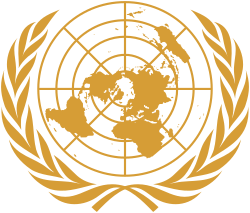 | |
| Discipline | Transportation |
|---|---|
| Language | English, Russian, Chinese, Arabic, Spanish, French |
| Publication details | |
| History | 1968–present |
| Publisher | UNCTAD (United States) |
| Frequency | Annual |
| Standard abbreviations | |
| ISO 4 | Rev. Marit. Transp. |
| Indexing | |
| ISSN | 2225-3459 (print) 0566-7682 (web) |
| OCLC no. | 1009038009 |
| Links | |
The Review of Maritime Transport (RMT) an annual publication by the United Nations Conference on Trade and Development (UNCTAD). It provides an analysis of structural and cyclical changes affecting seaborne trade, ports and shipping, as well as an extensive collection of statistical information [1]
Contents
The RMT is prepared by the Division on Technology and Logistics of the UNCTAD secretariat, it is an important source of information on the port sector. It closely monitors developments affecting world seaborne trade, freight rates, ports, surface transport and logistics services, as well as trends in ship ownership, port/flag state control, fleet age, tonnage supply and productivity. [2]